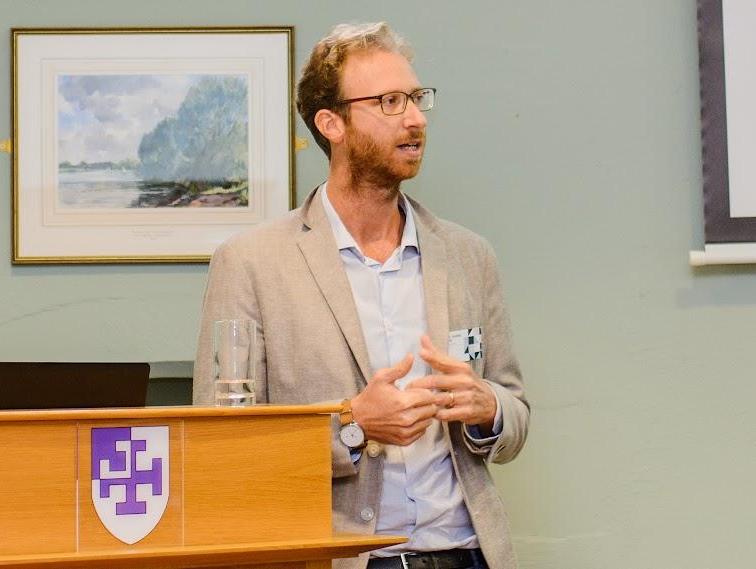Prof. Valerio Sterzi: The problem with patents

Valerio Sterzi, associate professor (Maître de conférences, HDR) in Economics at University of Bordeaux
Valerio Sterzi is on a mission. Ever since his undergraduate days at Bocconi University in Milan, he has been fascinated by the economics of innovation. At first he had great faith in patents as a tool for fostering innovation.
But as he delved ever deeper into the world of innovation economics - through his master at Pompeu Fabra University, Barcelona, and then a doctorate at Bergamo University in Milan – he started to see problems.
Part of the problem was that patents were a topic mainly studied by legal academics, not economists. “I wanted to correct this,” Professor Sterzi said in an interview.
“There needs to be more exchange and interaction between economists and law academics. Without the input of empirical economic evidence the debate about the role of patents is rather abstract. I want to get away from that,” he said.
Sterzi has just released a new study into the secondary market for patents in Europe, showing that non-practising entities (NPEs) appear as current owners of almost 20K patent applications at the European Patent Office (EPO).
The study provides further evidence of the significant presence of NPEs in Europe. NPEs target mainly the ICT industry, where they acquired almost one in ten of all transacted patents over the past decade, with a peak of over 25% in 2019.
Last year Sterzi published an in-depth study of an aggressive NPE (also known as a patent assertion entity (PAE) or more colloquially, patent troll). It read like a detective story, following one dormant shell company after another to identify the true owners.
Sterzi’s latest study does not focus specifically on patent abuse. That will again be the main focus of his follow-up study expected in 2022. Instead this paper looks to quantify the presence of NPEs in the European patent market and to characterize their business models.
What is clear from this study is that the NPEs acquiring almost 10% of ICT patents traded in Europe include big established firms, many based in the US, as well as the small shell companies identified last year. “It’s not a question of size, it’s a question of intention,” Sterzi said.
The study’s findings also show that the majority of NPEs operating in Europe have business models built around monetizing their patents, rather than using them to make innovative products.
When an NPE acquires a patent, the number of citations of that patent falls when the acquirers are large patent aggregators. This indicates that the patented idea was of limited use, and that its owner wasn’t actively exploiting the patent in the market.
The number of citations is important because it indicates how relevant the patented idea is. Patents with limited citations are often used for financial gain only, and do not contribute much to further innovation.
Poor quality patents are ideal for NPEs looking to make money through litigation, rather than through exploitation of the patented technology. First, they are cheaper to buy. But more important, they are just as effective a tool to threaten companies that the NPE claims are breaching its patents.
To an operating company, the potential harm from an injunction, and the likelihood of a protracted and costly legal battle, may be as great with a trivial, low quality patent as with a higher quality one. So an operating company may settle out of court to avoid these risks in either situation.
“I can’t say all NPEs are bad – some do encourage innovation by renumerating inventors – but there is a strong heterogeneity in the business models of NPEs – one focussed on monetization rather than intermediation,” he said.
Other blogs

IP2Innovate welcomes Draghi’s call to improve the pipeline from innovation to commercialization

IP2Innovate's submission on the upcoming European Innovation Act

